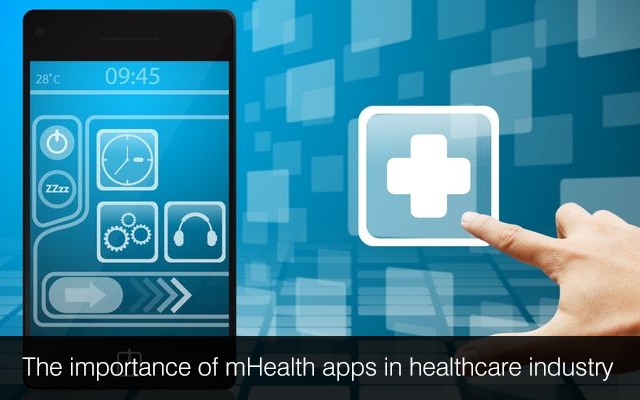The importance of mHealth apps in healthcare industry
 Mobile apps can certainly help many people to take care of their health & wellness, a healthier lifestyle, and also gives access to valuable information whenever they require it. These power tools are now being embraced almost as soon as they are built. As per industry reports, five hundred million smartphone consumers around the world will use at least one healthcare app by 2015, and 50% of the over 3.4 billion smartphone & tablet consumers are going to have installed moibile health apps by 2018. The government some time ago established a process of connecting medical center (and provider) reimbursement for the facilities to patient satisfaction ratings provided by HCAHPS (Hospital Consumer Assessment of Healthcare Providers and Systems). Though there's significant discussion on the relationship regarding patient satisfaction with the quality of care, the system is not going away soon - at least for some time.
Mobile apps can certainly help many people to take care of their health & wellness, a healthier lifestyle, and also gives access to valuable information whenever they require it. These power tools are now being embraced almost as soon as they are built. As per industry reports, five hundred million smartphone consumers around the world will use at least one healthcare app by 2015, and 50% of the over 3.4 billion smartphone & tablet consumers are going to have installed moibile health apps by 2018. The government some time ago established a process of connecting medical center (and provider) reimbursement for the facilities to patient satisfaction ratings provided by HCAHPS (Hospital Consumer Assessment of Healthcare Providers and Systems). Though there's significant discussion on the relationship regarding patient satisfaction with the quality of care, the system is not going away soon - at least for some time.
One of the essential drawback within the system according to David Lee Scher, MD - Owner & Director of DLS Healthcare Consulting, could make the system fail, would be the significant delay in delivering the results to the institutions. The delay goes in the order for ten months. Additionally, surveys might be provided to patients around 6 weeks once discharge. Could anyone recall exactly what his or her ER stay was like earlier on a three month hospitalization 6 weeks later when going home? There are certain apps currently available that enable patients to carry out the survey immediately. This might lead to a lot more secure data which providers could act upon much faster, that could eventually enhance satisfaction quicker. CMS isn't currently permit such type of technology. One particular issue is usually that the patients may be afraid of retribution while in the hospitalization for the negative reviews. David, further stated that this isn't a common issue in which people might expect that the criticisms might end up in positive modifications which providers ethics would overcome pride.
Nowadays, there are several patient knowledge tools available to choose from. Many are offered like a service by the pharma & medical device organizations. Some others are offered by many very good 3rd party commercial agencies. But the use of such apps is usually very low. Providers are, generally, aren't offering digital information to the patients. The mandate for the use of patient portals is just about 10% of hospitalized Medicare patients & 5% of outpatients. Additionally, the necessity for the exchange of data is quite unknown. An investment towards patient education tools will probably lead to enhanced risk management, reducing lawsuits, develop patient adherence to the medications & instructions and enable for the caregivers to get access to the information. Venture capitalists are usually made investments in the technologies which enable medical experiences with smartphones. The industry for this type of interactions has emerged like a natural development on the use of mobile technologies within the retail & financial fields along with Congressional desire for growing telehealth services.
As illustrated in the Merrit Howkins study about physician appointment wait times, insufficient access to the care, effect from in-person visits to caregivers, logistical issues for remote patients and also insufficient availablily of cost-effective care are the aspects which makes this particular technology interesting. Although many mobile health tools in use nowadays are reference apps for the healthcare providers and for the patients, there are methods through which other kinds of mobile technologies could be extremely helpful. To get maximum benefits of mHealth, you may consider hiring services of a mobile health app development company.
We provide Medical Software Development services. To outsource mhealth development needs of your organization, please get in touch with us at Mindfire Solutions.